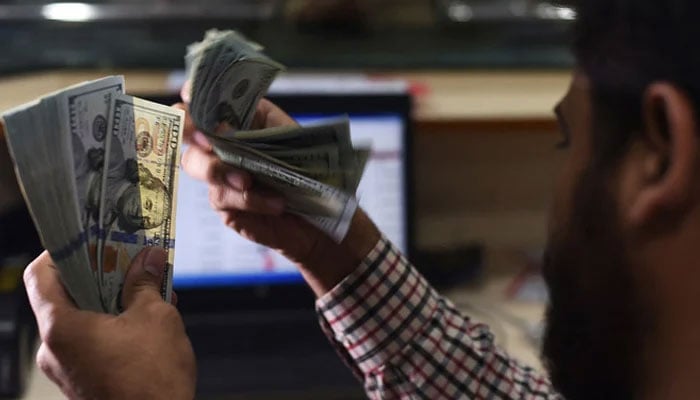SBP reserves decline for sixth straight week
This is the sixth weekly drop in the foreign exchange reserves amid efforts to revive IMF programme
The central bank’s reserves recorded a decline for sixth week in a row, falling to $3.91 billion due to external debt payments amid stalled International Monetary Fund (IMF) programme ending this month.
In a statement on Thursday, the State Bank of Pakistan (SBP) said the reserves decreased by $179 million to $3.91 billion during the week ended on June 2, barely enough to provide controlled-imports cover for one month.
The net foreign reserves held by commercial banks stand at $5.42 billion, $1.51 billion more than the reserves held by the central bank while the total foreign reserves held by the country stand at $9.3 billion million as of June 2.
This is the sixth weekly drop in the foreign exchange reserves, with Pakistan seeing no signs of securing external financing any time soon amid political instability — which has had a huge impact on the deteriorating economy.
The $350 billion economy is in turmoil amid financial woes and the delay in an agreement with the IMF that would release much-needed funding crucial to avoid the risk of default.
The government has been in talks with the Washington-based lender since end-January to resume the $1.1 billion loan tranche that has been on hold since November, part of a $6.5 billion Extended Fund Facility (EFF) agreed upon in 2019.
Earlier today, Finance Minister Ishaq Dar said that the coalition government has shared its budget numbers with the IMF, hoping to unlock the ninth review as there are "no issues in the numbers".
The government is under enormous pressure from the IMF to tighten the purse strings to unlock another last tranche of a vital bailout package.
Under the IMF's terms, Pakistan had to do away with subsidies on energy and other sectors, allow the rupee to float against the US dollar, raise taxes and duties, and restrict imports.
-
Bitwise Crypto Industry innovators ETF: What investors should do in 2026?
-
Nintendo shares slide again as momentum fears grow
-
Gold, silver prices fallen sharply; What’s driving the drop?
-
Gold’s record climb: Experts question if its safety is ‘overstated’
-
Dubai unveils plans to construct street built with real gold
-
Netflix slams Paramount’s bid: 'Doesn't pass sniff test’ as Warner battle escalates
-
Ubisoft: Shares plunge amid restructuring plan and wave of games cancellations
-
Netflix revises Warner Bros. deal to $83 billion: All-cash offer












